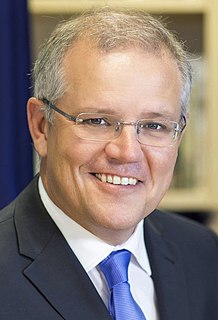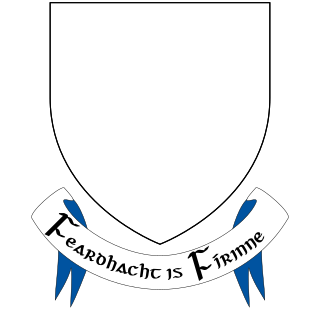A general election is an election in which all or most members of a given political body are chosen. These are usually held for a nation's primary legislative body, as distinguished from by-elections and local elections.

The Federal Election Commission (FEC) is an independent regulatory agency whose purpose is to enforce campaign finance law in United States federal elections. Created in 1974 through amendments to the Federal Election Campaign Act, the commission describes its duties as "to disclose campaign finance information, to enforce the provisions of the law such as the limits and prohibitions on contributions, and to oversee the public funding of Presidential elections."
The three classes of United States Senators are made up of 33 or 34 Senate seats each. The purpose of the classes is to determine which Senate seats will be up for election in a given year. The three groups are staggered so that senators in one of the groups are up for election every two years, rather than having all 100 seats up for election at once. For example, the 33 Senate seats of class 1 were up for election in 2018, the elections for the 33 seats of class 2 will take place in 2020, and the elections for the 34 seats of class 3 will be held in 2022.

The Legislature of the state of Texas is the state legislature of Texas. The legislature is a bicameral body composed of a 31-member Senate and a 150-member House of Representatives. The state legislature meets at the Capitol in Austin. It is a powerful arm of the Texas government not only because of its power of the purse to control and direct the activities of state government and the strong constitutional connections between it and the Lieutenant Governor of Texas, but also due to Texas's plural executive.
A presidential election is the election of any head of state whose official title is President.
Canada holds elections for legislatures or governments in several jurisdictions: nationally (federally), provincially and territorially, and municipally. Elections are also held for self-governing First Nations and for many other public and private organizations including corporations and trade unions. Municipal elections can also be held for both upper-tier and lower-tier governments. Formal elections have occurred in Canada since at least 1792, when both Upper Canada and Lower Canada had their first elections.

Elections in the United States are held for government officials at the federal, state, and local levels. At the federal level, the nation's head of state, the President, is elected indirectly by the people of each state, through an Electoral College. Today, these electors almost always vote with the popular vote of their state. All members of the federal legislature, the Congress, are directly elected by the people of each state. There are many elected offices at state level, each state having at least an elective Governor and legislature. There are also elected offices at the local level, in counties, cities, towns, townships, boroughs, and villages. According to a study by political scientist Jennifer Lawless, there were 519,682 elected officials in the United States as of 2012.

The Edmonton City Council is the governing body of the City of Edmonton, Alberta, Canada.

Philippine elections are of several types. The president, vice-president, and the senators are elected for a six-year term, while the members of the House of Representatives, governors, vice-governors, members of the Sangguniang Panlalawigan, mayors, vice-mayors, members of the Sangguniang Panlungsod/members of the Sangguniang Bayan, barangay officials, and the members of the Sangguniang Kabataan are elected to serve for a three-year term.

Nitish Kumar is an Indian politician. He is the present Chief Minister of Bihar, a state in India, since 2017 and has served in that role on five previous occasions. He has also served as a minister in the Union Government of India.
A term of office is the length of time a person serves in a particular elected office. In many jurisdictions there is a defined limit on how long terms of office may be before the officeholder must be subject to re-election. Some jurisdictions exercise term limits, setting a maximum number of terms an individual may hold in a particular office.

The election of president and vice president of the United States is an indirect election in which citizens of the United States who are registered to vote in one of the 50 U.S. states or in Washington, D.C. cast ballots not directly for those offices, but instead for members of the U.S. Electoral College, known as electors. These electors then in turn cast direct votes, known as electoral votes, for president, and for vice president. The candidate who receives an absolute majority of electoral votes is then elected to that office. If no candidate receives an absolute majority of the votes for President, the House of Representatives chooses the winner; if no one receives an absolute majority of the votes for Vice President, then the Senate chooses the winner.

The 2019 Indian general election is scheduled to be held in 7 phases from 11 April 2019 to 19 May 2019 to constitute the 17th Lok Sabha. The counting of votes will be conducted on 23 May 2019 and on the same day the results will be declared.

The 2017 United Kingdom general election took place on Thursday 8 June 2017, having been called just under two months earlier by Prime Minister Theresa May on 18 April 2017 after it was discussed in cabinet. Each of the 650 constituencies elected one Member of Parliament (MP) to the House of Commons. The governing Conservative Party remained the largest single party in the House of Commons but lost its majority, resulting in the formation of a minority government with a confidence-and-supply arrangement with the Democratic Unionist Party (DUP) of Northern Ireland.

The next general election in the United Kingdom is scheduled to be held on 5 May 2022 under the Fixed-term Parliaments Act 2011. The election may be held at an earlier date in the event of an early election motion being passed by a super-majority of two-thirds in the House of Commons, or a vote of no confidence in the government which is not followed by a vote of confidence within 14 days.

The 2020 United States elections will be held on Tuesday, November 3, 2020. All 435 seats in the United States House of Representatives, 34 of the 100 seats in the United States Senate, and the office of President of the United States will be contested. Thirteen state and territorial governorships, as well as numerous other state and local elections, will also be contested.

The 2019 Australian federal election will elect members of the 46th Parliament of Australia. The election will be called following the dissolution or expiry of the 45th Parliament as elected at the 2016 double dissolution federal election.

The 2022 United States elections will be held on Tuesday, November 8, 2022 in the middle of the term of the President elected in 2020. During this mid-term election year, all 435 seats in the United States House of Representatives and 34 of the 100 seats in the United States Senate will be contested. 39 state and territorial governorships and numerous other state and local elections will also be contested. This will be the first election affected by the redistricting that will follow the 2020 United States Census.













